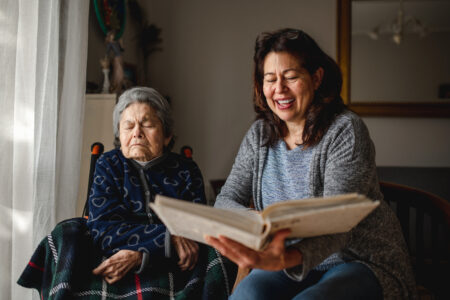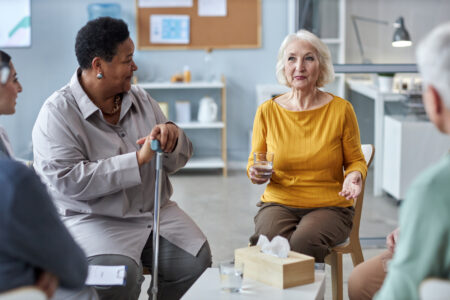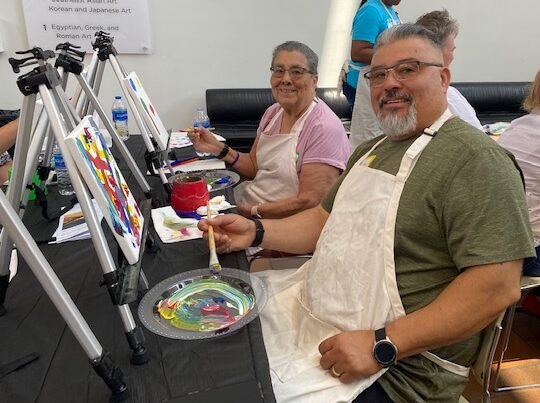
Share On Social!
Thomas Brittain and his immediate family gathered in the neurologist’s office, eager to hear the health status of their beloved family member, 67-year-old Sarah Cadena.
“Your mother has a cognitive impairment,” the neurologist said. “We recommend that she transition to living with family for her own safety.”
Without a second thought, the Brittain family began planning how to care for Sarah Cadena.
That was 13 years ago.
Since then, Sarah Cadena has been diagnosed with Alzheimer’s, a disease that can lead to progressive memory loss and ability to perform daily activities.
Thomas, Sarah Cadena’s son, a retired San Antonio police officer, is now her primary caretaker. Sarah Cadena lives with Thomas and his family, and as far as caretaking goes, Thomas said he and his mother are “joined at the hip.”
He wouldn’t have it any other way.
Caregivers – The Glue That Holds Families Together
Caregivers play an important role in the Latino community.
One in five Latino adults (20%) provide unpaid care to an adult with health issues or a disability, according to a 2020 survey conducted by AARP.
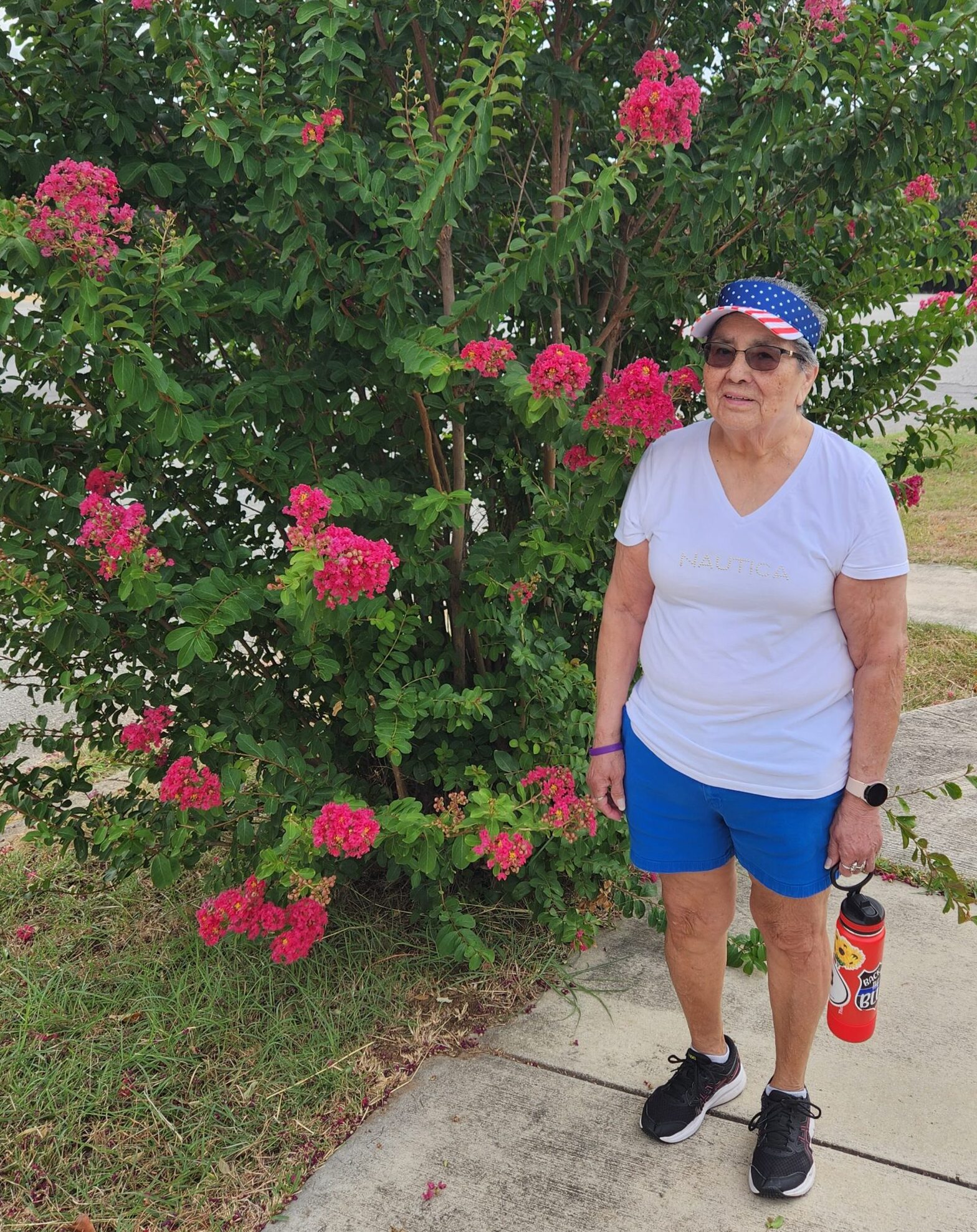
The National Institute of Health reports that 25% of these Latino caregivers are caring for someone with dementia, including Alzheimer’s.
Unfortunately, Latinos are disproportionately impacted by dementia. Compared to Whites, Latinos are 1.5 times more likely to have the disease.
More research is needed to understand why.
In the meantime, Latino caregivers, such as Thomas, are stepping up to care for their loved ones.
“Her Alzheimer’s has been a slow progression, and I think that’s probably because I try to keep her brain as active as I can,” Thomas explained. “We play games every day, like dominoes, Scrabble, and card games. I prompt her to call her friends and play these games with her friends, too. Weather permitted; we try to walk about a mile to two miles a day.”
Additionally, Thomas takes his mother to run simple errands, like checking the mail or going to the store.
When his kids were younger, Sarah Cadena attended all their sports practices and games.
“I include her pretty much in in all our family activities,” Thomas said. “I’ve found that a routine is helpful for Alzheimer’s.”
But caring for a loved one with Alzheimer’s often involves other responsibilities as the disease progresses.
For instance, Thomas now manages his mother’s bank account, makes sure she’s taking her medications, and keeps track of her diet to keep her diabetes under control.
He also attends all her medical appointments.
“Even if I’m unable to go, someone in my family would go in my place and record the doctor’s appointment for me. That way we’re all on the same page and we’re all well informed,” Thomas said.
“I am very blessed; he takes great care of me,” Sarah Cadena said with a grin.
Journey to UT Health San Antonio
When it comes to caregiving for someone with Alzheimer’s or any chronic disease, it’s important to shop around for a doctor, Thomas explained.
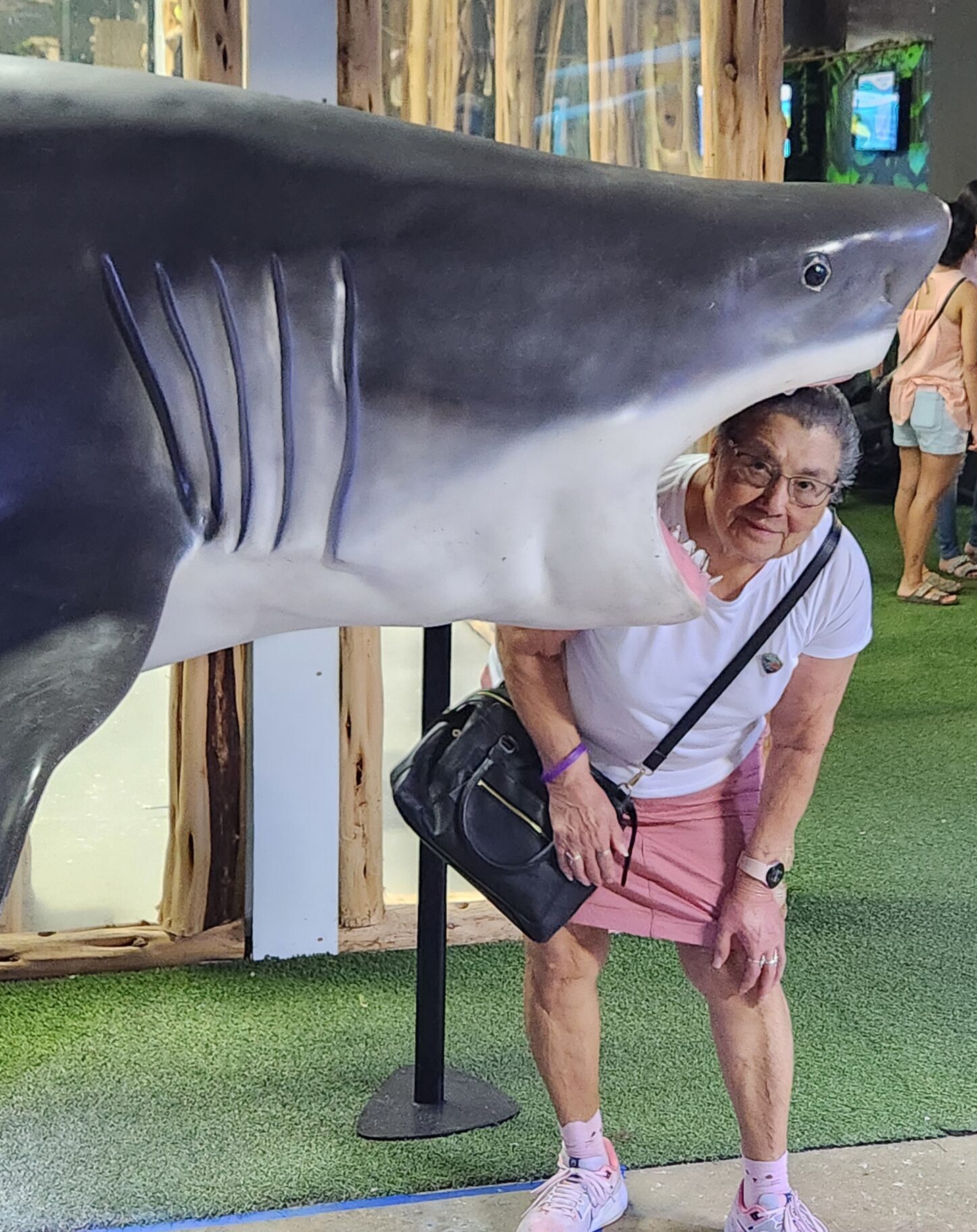
That’s how the Brittain family became involved with UT Health San Antonio.
“At one point, I wasn’t too keen on her healthcare providers. I felt that she was being overmedicated and doctors weren’t taking her concerns seriously. I had to be an advocate for her health,” Thomas said.
“When we switched to UT Health [San Antonio], the doctors agreed that she was on a lot of medication. After running tests over the course of a few days, they took her off three or four powerful medicines that she didn’t need.”
The Brittain family finds the neurologists at UT Health San Antonio to be caring and sensitive to the challenges of Alzheimer’s.
“The great thing about the doctors at UT Health [San Antonio] is that many of them have personal experience with Alzheimer’s and dementia. We’re very fortunate to receive care there,” Thomas said.
UT Health also introduced Thomas and Sarah Cadena to a variety of resources for both Alzheimer’s patients and their caregivers.
For instance, through the Caring for the Caregiver program with Dr. Sara Masoud, Thomas and Sarah Cadena regularly attend Memory Cafes, which give people living with dementia and their caregivers a chance to laugh, learn, and socialize with others going through similar experiences.
They also participate in Grace Notes Community Singers, a choir for people living with dementia and their families.
Seeing the positive effects of these programs has inspired Thomas and Sarah Cadena to become even more involved in the Alzheimer’s community.
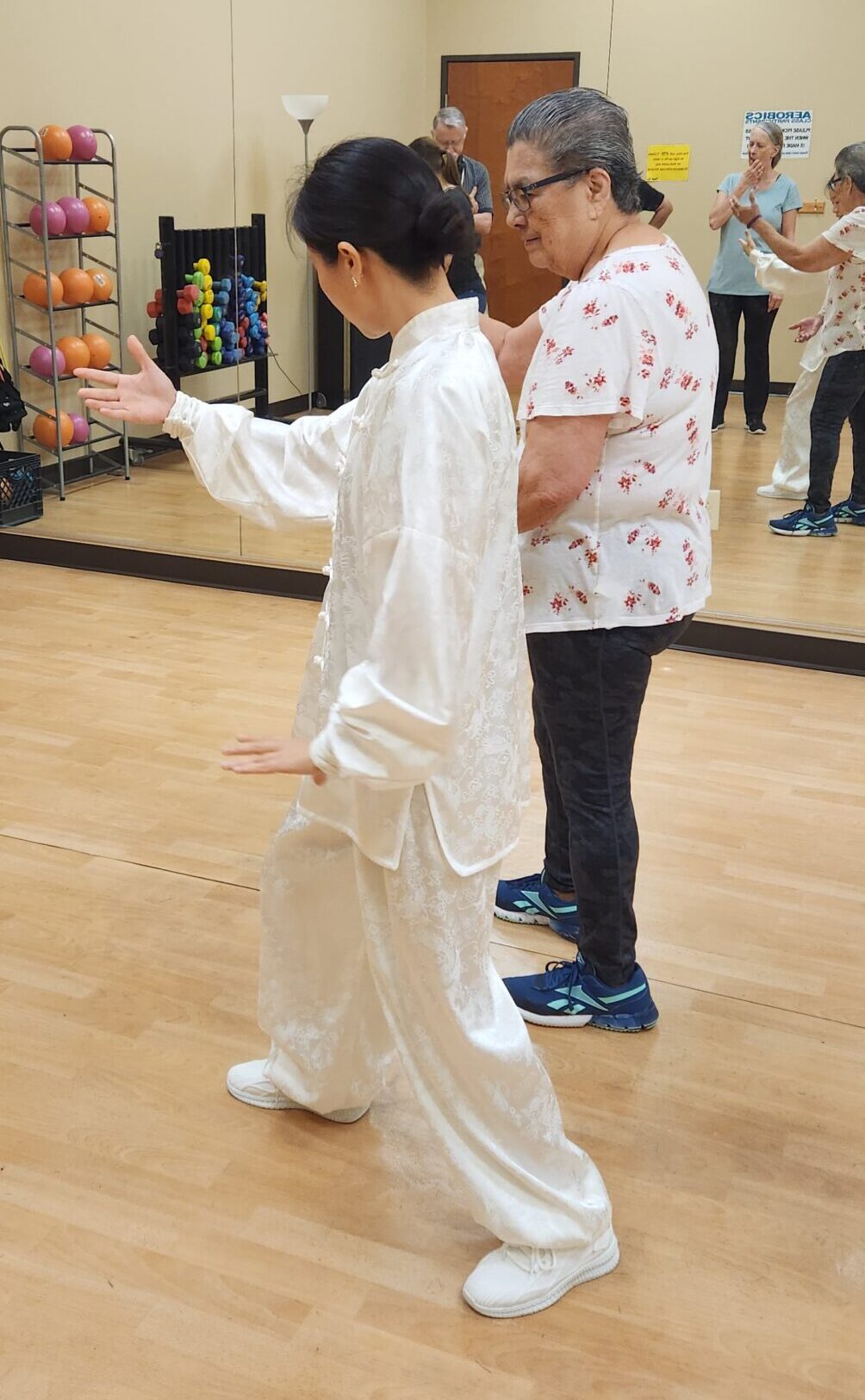
For the last two years, they’ve served on a community Steering Council to help UT Health San Antonio researchers better understand South Texas Latinos’ experiences with dementia and how dementia care research can help address disparities in this population.
As part of this work, Thomas and Sara have been helping host pláticas (community conversations) with Latino families in South Texas and other key community members to support patient-centered research in dementia care.
Thomas and Sarah Cadena also recognize that to improve Alzheimer’s care for Latino patients, more research on this population is needed.
Thus, they’ve participated in Alzheimer’s clinical trials at UT Health San Antonio.
Clinical trials are studies with volunteers that help researchers learn more to help slow, manage, and treat Alzheimer’s and dementia for current and future family members.
“I’m grateful that we’re able to take advantage of all the resources,” Thomas said. “We wouldn’t have known about them except for UT Health [San Antonio].”
Caregiving Challenges in the Latino Culture
Although many Latinos are caring for family members with Alzheimer’s and dementia, it can be hard to ask for help and acknowledge that caregiving is a full-time job.
“Many caregivers within the Hispanic/Latinx community don’t realize they are caregivers or don’t identify with the term. Some think they are just doing what they should for their families or loved ones,” according to the American Society on Aging.
In fact, Thomas explained that some Latinos may feel ashamed to ask for caregiving assistance.
“They don’t want to be a bother other folks,” he said. “There should be no stigma in asking for help. In my family, there was never any stigma; we recognize that it takes a village to raise a child, and it takes a village to take care of seniors as well.”
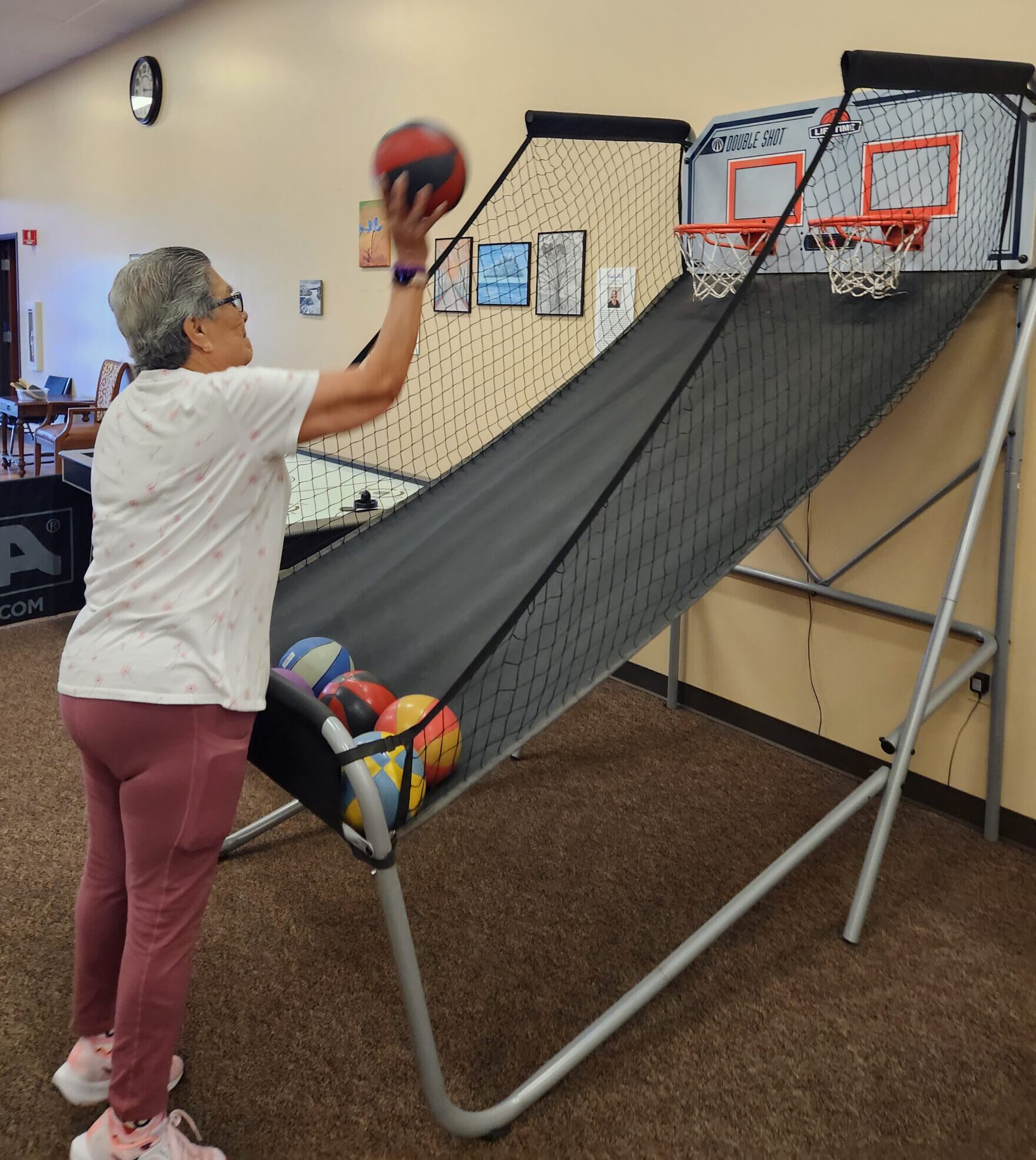
In addition to the resources at UT Health San Antonio, the city of San Antonio offers a variety of programs that help older residents age in place with dignity and give caregivers time to care for themselves.
In the past, other family members in the Brittain family who were diagnosed with Alzheimer’s were not as lucky to have access to such resources. They lived in rural areas and their family caregiver wasn’t in a place to retire or put their career on pause.
Thus, Thomas recognizes that when it comes to caregiving, “we’re probably the outlier,” he said.
“I’m not having to work and care for my mom, where the majority of people are. So, it makes it a lot easier for us, but I definitely understand the challenges that come with trying to balance it all.”
Nevertheless, Thomas feels that it’s important to reciprocate caregiving in the Latino community and all families as much as possible.
“My mother cared for my grandparents, who cared for their parents. I’m caring for my mom until the day that I can’t,” he said. “You’re not going to be a perfect caregiver. No one is. So, take it easy on yourself, and try to be as respectful as you can. It could be you who needs care one day.
“If we don’t help each other, our family, or our neighbors, our communities are just going to fall apart.”
The biggest advice Thomas gives to caregivers is to take care of yourself. Go to the gym. Eat healthy. Engage in hobbies. And don’t forget to enjoy the little things in life – like a summer breeze, the smell of flowers, or butterflies fluttering through the garden.
“If you don’t take care of yourself, you’re not going to be able to effectively care for somebody else,” Thomas said.
Learn more about Thomas Brittain and other Latino caregiver resources.
Learn more about UT Health’s Caring for the Caregiver program.
Learn more about San Antonio’s resources for seniors and their caregivers.
Help Researchers Learn More About Dementia in Latinos
You can help protect your familia and the next generation from dementia by helping researchers learn more about this disease and its effects on Latinos.
Participating in clinical trials and research studies, like Thomas and Sarah Cadena, is one way to help.
Without Latino volunteers for clinical trials, the benefits may miss this group.
“Latinos in clinical trials are not only helping themselves, but they’re also building a future with better treatments that can help their families in the future,” said Dr. Amelie Ramirez, director of the Institute for Health Promotion Research and Salud America! at UT Health San Antonio.
Thanks to a grant from Genentech, a member of the Roche Group, Dr. Ramirez is creating new ways to urge Latinos to volunteer for clinical trials.
Visit our clinical trials page to find a clinical trial, read about heroes who have volunteered for clinical trials, and more!
Explore More:
DementiaBy The Numbers
142
Percent
Expected rise in Latino cancer cases in coming years
This success story was produced by Salud America! with support from the Robert Wood Johnson Foundation.
The stories are intended for educational and informative purposes. References to specific policymakers, individuals, schools, policies, or companies have been included solely to advance these purposes and do not constitute an endorsement, sponsorship, or recommendation. Stories are based on and told by real community members and are the opinions and views of the individuals whose stories are told. Organization and activities described were not supported by Salud America! or the Robert Wood Johnson Foundation and do not necessarily represent the views of Salud America! or the Robert Wood Johnson Foundation.

